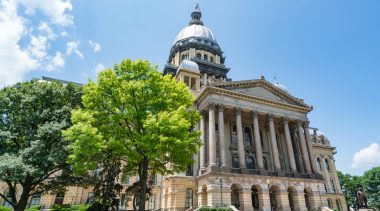Geoffrey Lawrence is research director at Reason Foundation.
Lawrence has been a financial executive in both the public and private sectors and has served as chief financial officer of publicly traded, growth stage, and startup manufacturing and distribution companies. He was CFO of Players Network, the first fully reporting, publicly traded marijuana licensee to be listed on a U.S. exchange, CFO of C Quadrant, a startup manufacturer and distributor that was subsequently sold to Lowell Farms (LOWL), CFO of Apex Extractions, a manufacturer and distributor based in Oakland that he helped take public, and, most recently, CFO of Claybourne Co., a top-3 flower brand in California by market share. Through these roles, Lawrence raised capital, planned capital expenditure, prepared financial forecasts, implemented systems for accounting and inventory control, designed internal control processes, managed monthly and quarterly closings and reporting, managed compliance with state and local regulations, negotiated contracts, and prepared filings with the U.S. Securities and Exchange Commission.
Lawrence also served as a senior appointee to the Nevada Controller’s Office, where he oversaw the state’s external financial reporting. Prior to joining Reason Foundation in 2018, Lawrence had also spent a decade as a policy analyst on labor, fiscal, and energy issues between North Carolina’s John Locke Foundation and the Nevada Policy Research Institute.
Lawrence is additionally the founder and president of an accounting and advisory firm with particular expertise in the licensed cannabis industry and public markets.
Lawrence holds an M.S. and B.S. in accounting from Western Governors University, an M.A. in international economics from American University, and a B.A. in international relations from the University of North Carolina at Pembroke. He lives in Las Vegas with his wife and two children and enjoys baseball and mixed martial arts.
-
A Comparison of the Proposed Hemp Programs in North Carolina and Florida
As more states explore hemp programs, they will look to early states as examples. So it’s important that the first states get it right.
-
Michigan’s Marijuana Regulators Are Running Ahead of Schedule
Michigan is also pioneering a new data-sharing platform to allow banks and credit unions to perform enhanced due diligence on marijuana businesses that apply for accounts with them.
-
Comparing Illinois’ Draft Legislation to Legalize Marijuana to Reason’s Conceptual Framework
In some ways, Senate Bill 7 in Illinois would create an overly regulated and restrictive cannabis marketplace that substitutes inflexible bureaucratic directive for entrepreneurial judgment and initiative.
-
Nevada’s Marijuana Banking Bill Is Not a Viable Solution for Businesses
Banking actions that most entrepreneurs take for granted become incredibly difficult and dangerous when it all must be done by physically moving cash.
-
A Historical Review of State Efforts and Authority To Regulate Cannabis
The history of cannabis regulation begins largely in California during the Gold Rush.
-
A Conceptual Framework for State Efforts to Legalize and Regulate Cannabis
Best practices that policymakers should use for improving their existing marijuana markets or establishing new ones.
-
California Counties Go Rogue on Legalized Marijuana
The initiative passed by voters clearly states that no cannabis regulations may prohibit a licensee from using alternative technologies or procedures.
-
How a Corrupt Marijuana Testing Lab Incident Highlights the Benefits of Legalized Marijuana
The state’s evolving regulatory structure must adapt.
-
How to Make Legal Pot Work for Michigan
Michigan voters took a great step toward ending the failed war on drugs.
-
The Truth About Electric Choice in Nevada
It’s rare that citizens get a chance to vote on their right to choose among electricity providers.










